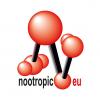Here's a few of the studies from this past year that caught my eye:
Cerebrolysin Attenuates Heat Shock Protein (HSP 72 KD) Expression in the Rat Spinal Cord Following Morphine Dependence and Withdrawal: Possible New Therapy for Pain Management.
Sharma HS, Ali SF, Patnaik R, Zimmermann-Meinzingen S, Sharma A, Muresanu DF.
The possibility that pain perception and processing in the CNS results in cellular stress and may influence heat shock protein (HSP) expression was examined in a rat model of morphine dependence and withdrawal. Since activation of pain pathways result in exhaustion of growth factors, we examined the influence of cerebrolysin, a mixture of potent growth factors (BDNF, GDNF, NGF, CNTF etc,) on morphine induced HSP expression. Rats were administered morphine (10 mg/kg, s.c. /day) for 12 days and the spontaneous withdrawal symptoms were developed by cessation of the drug administration on day 13(th) that were prominent on day 14(th) and continued up to day 15(th) (24 to 72 h periods). In a separate group of rats, cerebrolysin was infused intravenously (5 ml/kg) once daily from day one until day 15(th). In these animals, morphine dependence and withdrawal along with HSP immunoreactivity was examined using standard protocol. In untreated group mild HSP immunoreaction was observed during morphine tolerance, whereas massive upregulation of HSP was seen in CNS during withdrawal phase that correlated well with the withdrawal symptoms and neuronal damage. Pretreatment with cerebrolysin did not affect morphine tolerance but reduced the HSP expression during this phase. Furthermore, cerebrolysin reduced the withdrawal symptoms on day 14(th) to 15(th). Taken together these observations suggest that cellular stress plays an important role in morphine induced pain pathology and exogenous supplement of growth factors, i.e. cerebrolysin attenuates HSP expression in the CNS and induce neuroprotection. This indicates a new therapeutic role of cerebrolysin in the pathophysiology of drugs of abuse, not reported earlier.
PMID: 21886595
And one which confirms that the effects persist after cessation of use:
Beneficial effects of a neurotrophic peptidergic mixture persist for a prolonged period following treatment interruption in a transgenic model of Alzheimer's disease.
Rockenstein E, Ubhi K, Pham E, Michael S, Doppler E, Novak P, Inglis C, Mante M, Adame A, Alvarez XA, Moessler H, Masliah E.
...However, it is unclear how long-lasting the beneficial effects of Cerebrolysin are and whether or not behavioral and neuropathological alterations will reappear following treatment interruption. The objective of the present study was to investigate the consequences of interrupting Cerebrolysin treatment (washout effect) 3 and 6 months after the completion of a 3-month treatment period in APP tg mice. We demonstrate that, in APP tg mice, Cerebrolysin-induced amelioration of memory deficits in the water maze and reduction of neurodegenerative pathology persist for 3 months after treatment interruption; however, these effects dissipate 6 months following treatment termination. Immunohistochemical analysis demonstrated that the decrease in neocortical and hippocampal amyloid plaque load observed in Cerebrolysin-treated APP tg mice immediately after treatment was no longer apparent at 3 months after treatment interruption, indicating that the beneficial effects of Cerebrolysin at this time point were independent of its effect on amyloid-β deposition. In conclusion, the results demonstrate that the effects of Cerebrolysin persist for a significant period of time following treatment termination and suggest that this prolonged effect may involve the neurotrophic factor-like activity of Cerebrolysin.
PMID: 21793038
And
another showing persistence via EEG.
Combination treatment in Alzheimer's disease: results of a randomized, controlled trial with cerebrolysin and donepezil: Cerebrolysin slightly more effective than donepezil, additive when combined.
The chronic administration of cerebrolysin induces plastic changes in the prefrontal cortex and dentate gyrus in aged mice: CRB increases dendritic length
Chronic administration of the neurotrophic agent cerebrolysin ameliorates the behavioral and morphological changes induced by neonatal ventral hippocampus lesion in a rat model of schizophrenia:first study on schizophrenia model
Cerebrolysin enhances neurogenesis in the ischemic brain and improves functional outcome after stroke: not really a revelation, but a nice study looking closely at neuron progenitor genesis and migration.
It also seems that more and more research on this is being done in the US. I find this highly encouraging, since IMO it's one of the best candidates for disease-arresting treatment of AD.
Edited by chrono, 08 October 2011 - 08:41 PM.
































 This topic is locked
This topic is locked















